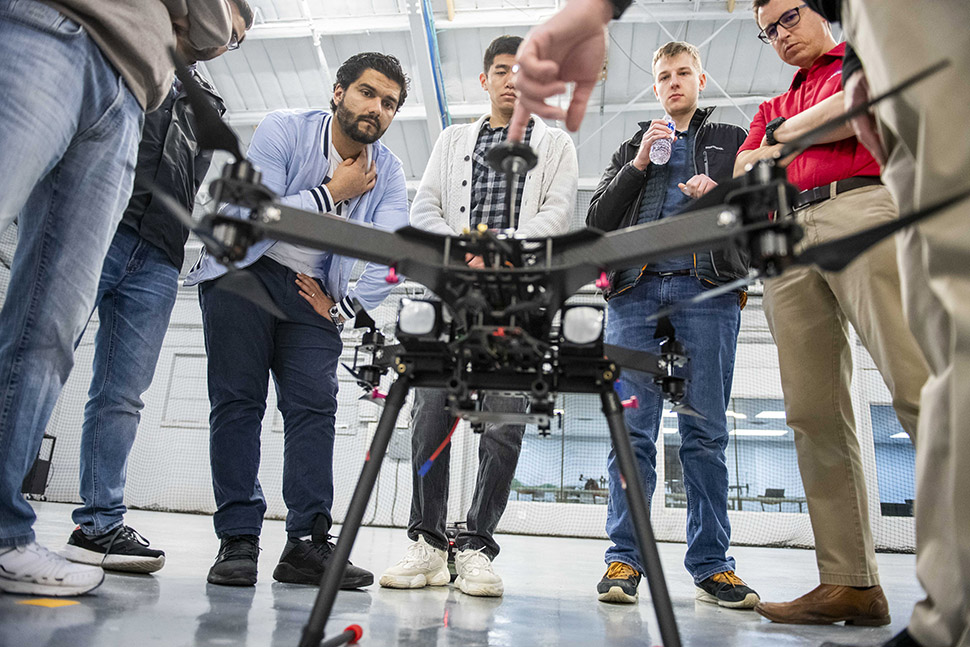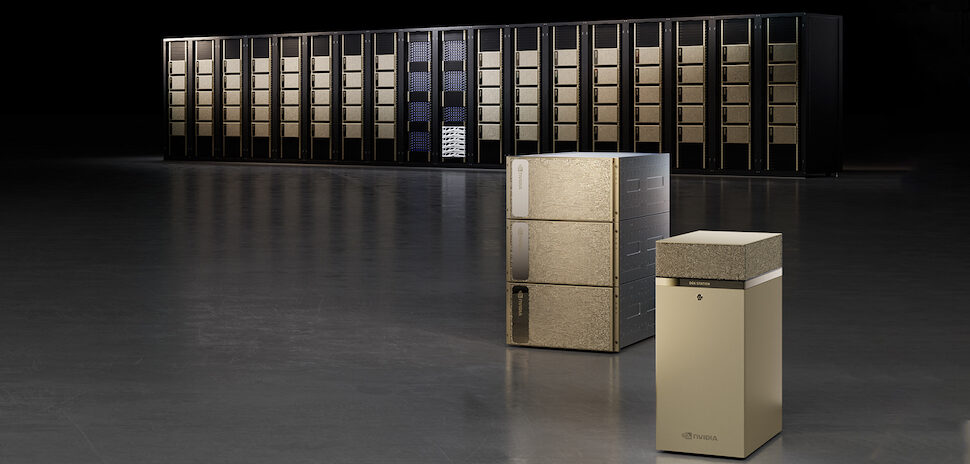![]() Every week, we do a little research of our own. We’re looking for scientists, professors, engineers, entrepreneurs—anybody, really—engaging in research and development across North Texas.
Every week, we do a little research of our own. We’re looking for scientists, professors, engineers, entrepreneurs—anybody, really—engaging in research and development across North Texas.
There’s plenty of good work being done. If you want to put R&D under your microscope, sign up for our e-newsletter.
Let’s talk: SMU team works on drone communication
Professors at Southern Methodist University are conducting ongoing research in helping drone swarms better communicate, using an $849,839 grant from the National Science Foundation they received in 2018.
Joseph Camp and Dinesh Rajan of the Lyle School of Engineering are heading the research that’s focused on building a multidimensional drone communication infrastructure framework, also called a MuDDI.
The research is aimed at making drones communicate better in groups. SMU points out that drone swarms could help in search and rescue missions and other important functions, but that can only happen once the communication issue is fixed.
Students started collecting data at SMU-in-Taso—located in the Sangre de Cristo Mountains in New Mexico—last summer. Now, they’re helping convert an off-campus warehouse into a laboratory that would foster a controlled environment to more precisely measure wireless transmissions.
You can find out more about the research and watch a video here.
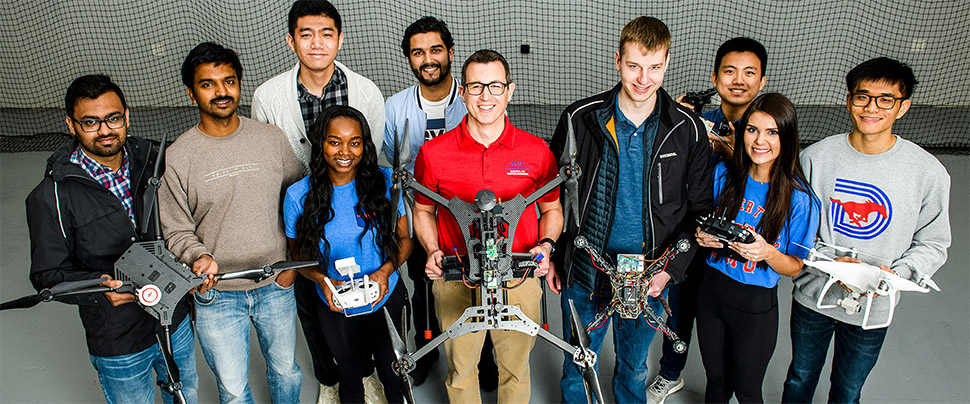
[Photo: via SMU]
UTA professor works to create more sustainable large cities
A faculty member at the University of Texas at Arlington is part of a research team creating simulations that could make for more sustainable cities.
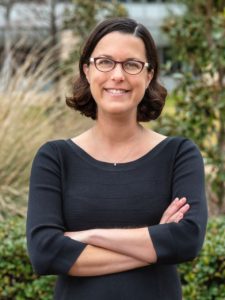
Caroline Krejci
Industrial engineering Assistant Professor Caroline Krejci is working in collaboration with researchers from Iowa State University on developing a framework to analyze food, water, and energy systems in the greater Des Moines, Iowa, area. Those resources are what city dwellers require in massive amounts, but can’t be produced locally.
The university said that Krejci will assist with the collection and evaluation of human behavior data, such as the preferences, beliefs, and behaviors of farmers and urban consumers regarding local food systems.
Krejci will use the data she collects to create a social simulation model of farmers and consumers who interact, learn, and make decisions about producing or buying locally sourced food, UTA said. The model will test the impact of various policies on both consumer and farmer decisions over time.
UTA said that the results of those decisions will be linked to biophysical models created by other team members to determine their impact on the environment in and around Des Moines, especially concerning water quality—a big issue in Iowa.
Collaboration between UNT and LaCore Labs includes a $1M gift and new laboratory
A first-of-its-kind collaboration between the University of North Texas and Melissa-based LaCore Labs will produce major dividends for the university and the company.
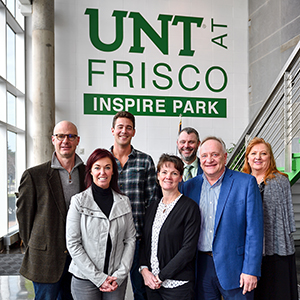
Representatives of LaCore Labs and UNT at UNT Frisco Inspire Park. [Photo: UNT/Michael Clements]
The collaboration will include a $1 million gift that’s eligible for matching funds from the Texas Research Incentive Program, UNT said, as well as a new laboratory, sponsored research, a license to UNT technology, and real-world opportunities for students.
LaCore Labs, a developer of custom-formula health products, will establish an innovation center at UNT, too.
The five-year agreement will equip an analytical research chemistry lab at UNT’s Inspire Park, a business incubator in Frisco that hosts startup and technology companies and features classroom and laboratory spaces. LaCore signed a five-year lease and converted a space to wet labs, an investment that topped $600,000.
LaCore Labs also has licensed patented technology from UNT for an improved patch delivery system for prescription medications or nutraceuticals. The technology was developed by Guido Verbeck, a chemistry professor in the College of Science and director of the Laboratory of Imaging Mass Spectrometry at UNT.
![]()
Get on the list.
Dallas Innovates, every day.
Sign up to keep your eye on what’s new and next in Dallas-Fort Worth, every day.










